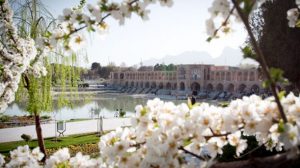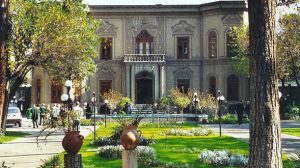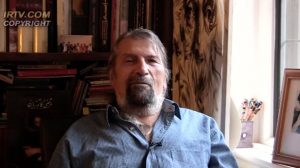Jamshid Chalangi:
In the first part of tonight’s program of Behind the Headlines we speak to the oil market expert Mr. Sohrab Sobhani about the consequences of the US oil embargo on Iran.
In the second part of tonight’s program we speak to Mr. Mohammad Reza Haydari, a member of the Green Embassy Campaign, on the issue of the expelling of two Iranian diplomats from Holland.
And in the third part of tonight’s program of Behind the Headlines we speak to the Toronto based human rights activist Mr. Afshin Afshinjam who would tell us why the Canadian government has cancelled its policy of full diplomatic relations with the Islamic republic regime in Iran.
Sohrab Sobhani:
From a historic point of view, oil has been used as a commodity to help build stable and prosperous economies for their people in countries like the US, Norway and United Arab Emirates.
The US government has transferred the ownership of its oil industries to the private sector and many of the American universities, like the Chicago University, are actually run on the oil revenue of their State.
In Kuwait the oil revenue is deposited in an investment bank account for the benefit of its current and future generations.
So the oil revenue can only be beneficial to a nation when clean officials spend it for the well being of their people under clear management.
Now Iran is involved in a proxy war with Saudi Arabia and this has affected Iran’s oil production quotas. We have turned the oil revenue into a political war and do not have access to the latest technology of oil exploration and refineries either.
Iran has an annual oil revenue of around $5 billions but even this amount will be reduced in the coming months as a result of the US sanctions.
Mohammad Reza Haydari:
In view of the activities of Iranian dissidents abroad and their connection with inside Iran, the regime has again been forced to resort to its terrorist activities and with the murders of Ahmad Nisi in Holland in 2015 and Ali Motamedi of the Mujaheddin group it appears that the regime’s terror machine has been operating from its embassy in Holland.
The hardliners in the regime think that by creating an atmosphere of fear among the exiled Iranian communities they will be forced to abandon their opposition to the regime.
Many of the regime’s diplomats in foreign countries are members of its security and intelligence units who are involved in the assassination of Iranian dissidents in exile.
Afshin Afshinjam:
The current water shortage and environmental woes of Iran are the result of a mixture of mismanagement and climate changes.
However, the same climate changes have appeared in the neighboring countries of Iran but none have faced such severe environmental problems like what we have in our country.
Another major problem here is that the Iranian regime does not feel responsible enough to care for the wellbeing of the Iranians and while our own people are suffering from lack of proper healthcare, its foreign minister travels to Uganda to open a multi-million dollar hospital that they have built there to attract the support of the Muslims of that country.







Add Comment